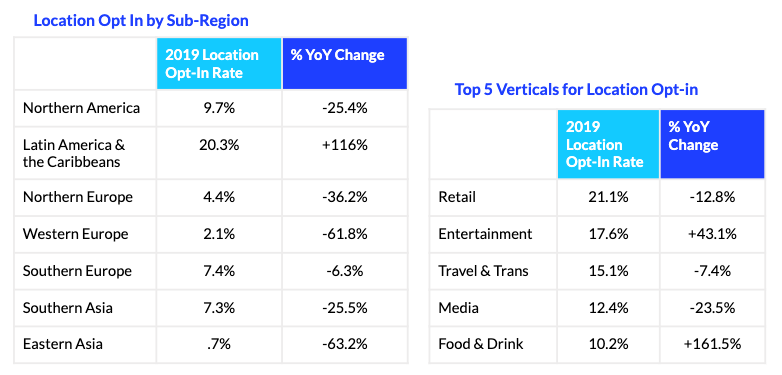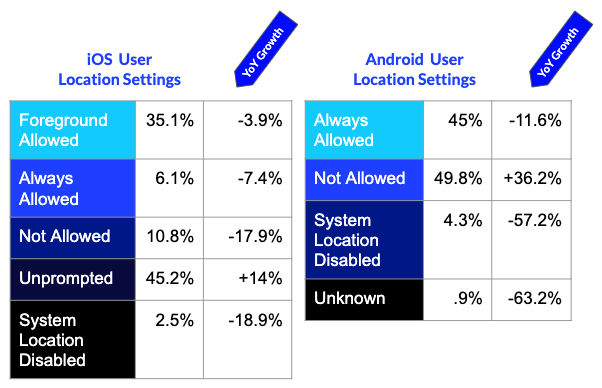A year after GDPR, mobile notifications are up, location sharing is down
Airship examined mobile app permissions data from more than 700 million users worldwide.
In the wake of GDPR and a constant drumbeat of largely negative privacy news in Europe and North America, consumers and marketers are adapting to a changed landscape.
In Europe, more limited third-party data may have lead to growth in mobile app notifications as marketers rely more heavily on first-party tools. The post-GDPR environment has also resulted in more selective location sharing by consumers, research shows. That’s also true in the U.S., where new privacy rules have yet to take effect.
Notifications average 36 per month. Mobile app audiences are up by nearly 17% on average compared with a year ago when GDPR took effect. Marketers and publishers are sending more notifications globally, on average 36 per month. These insights come from an Airship review of user engagement with mobile app permissions and notifications worldwide since May 2018. Data from more than 700 million users was examined for the study.
The notifications opt-in rate, Airship reports, is 67% of users overall. These numbers vary, however, by region.

Source: Airship
In the Americas specifically there has been a small 0.9% decline in notifications opt-ins but an increase the the number of notifications being sent. But what’s more interesting is the data on location opt-in rates.
GDPR Europe sees fewer location opt-ins. Northern and Western Europe have the lowest location opt-in rates of all the regions studied (4.4% and 2.1% respectively). That represents a significant drop from a year ago, as privacy sensitivity has caused more people to decline location sharing.
Location opt-ins are off 25% in North America overall.

Source: Airship
However, in specific verticals such as entertainment and food, location sharing is up considerably. This likely reflects the utility of sharing location for mobile app users in these contexts. It also suggests that marketers and brands will need to make a stronger case for location permissions going forward. Store locator “1.0” functionality will no longer cut it.
Users consciously selective about sharing location. The Airship data also reflects interesting differences between users on iOS and Android. Pre-Android Q users are blocking location more often than iOS users, who have the option to share location only while an app is in use. Android Q adopts this approach, which should make future location permissions on Android look more like iOS.
On iOS, “unprompted” location sharing is up, which suggests caution among some developers and a recognition of the value of app location among users. Airship didn’t have visibility into the app categories where this was happening. In addition, fewer users on both platforms seem to be disabling location less often.

Source: Airship
Why we should care. Users are becoming more thoughtful and careful about when they share location and why. Developers and marketers will have to make a stronger case to users to get them to opt-in. However, this massive study also makes clear that mobile notifications continue to be a powerful marketing and customer engagement channel globally as first party data and tools take on much more importance in a post-GDPR (and soon CCPA) world.
Contributing authors are invited to create content for MarTech and are chosen for their expertise and contribution to the search community. Our contributors work under the oversight of the editorial staff and contributions are checked for quality and relevance to our readers. MarTech is owned by Semrush. Contributor was not asked to make any direct or indirect mentions of Semrush. The opinions they express are their own.
Related stories